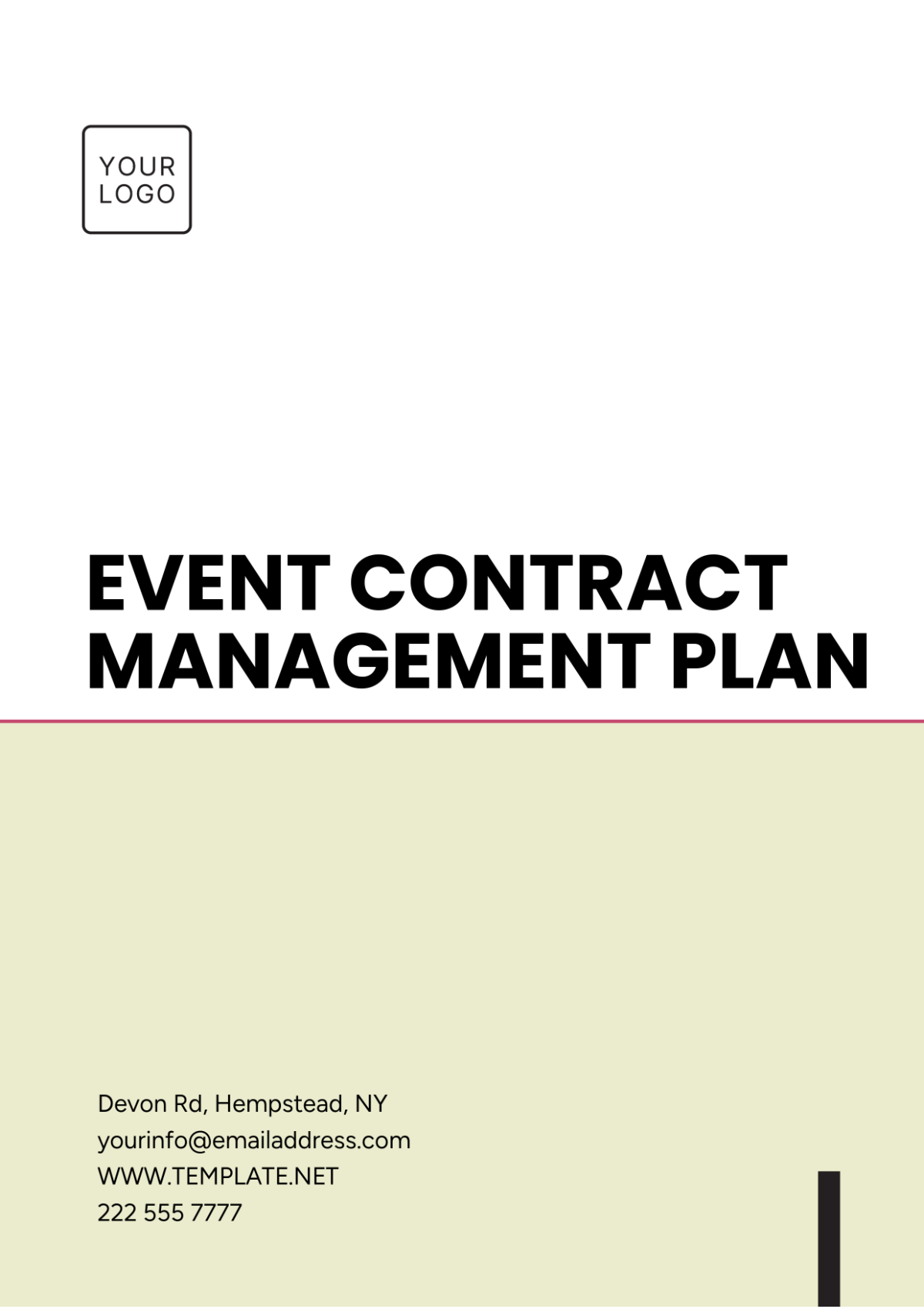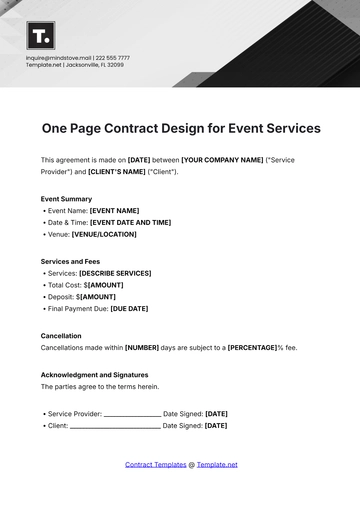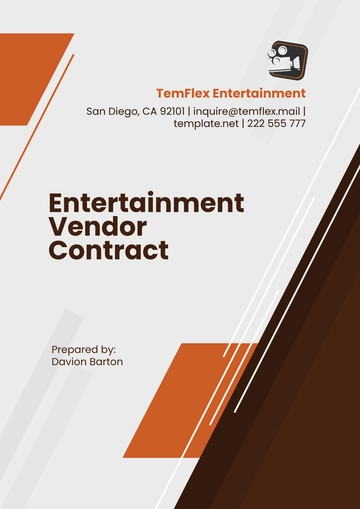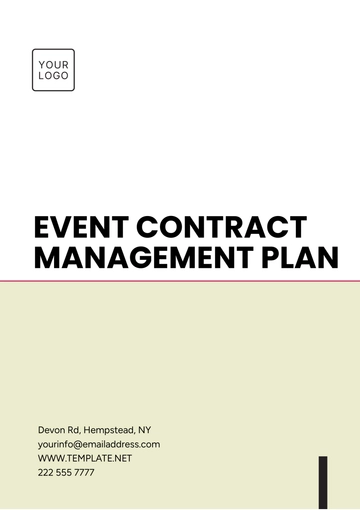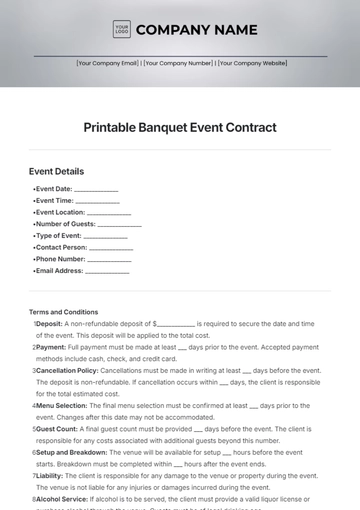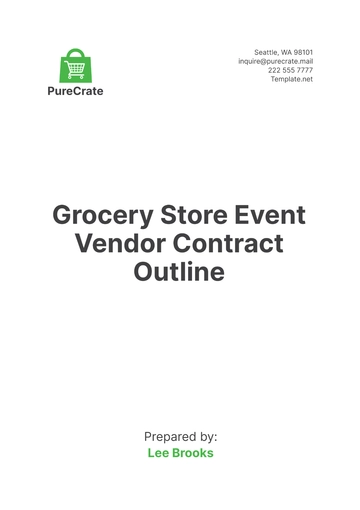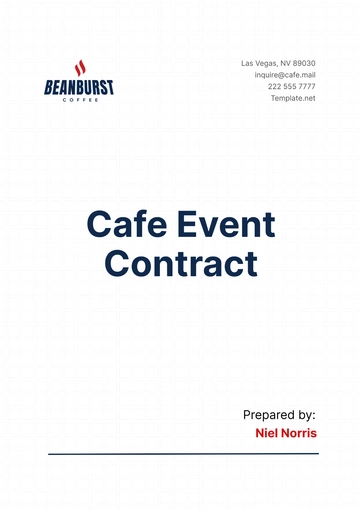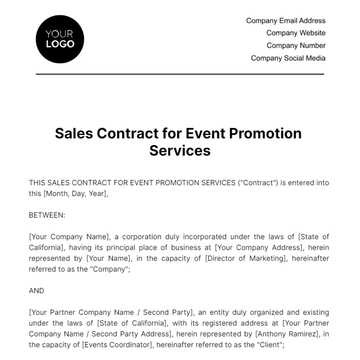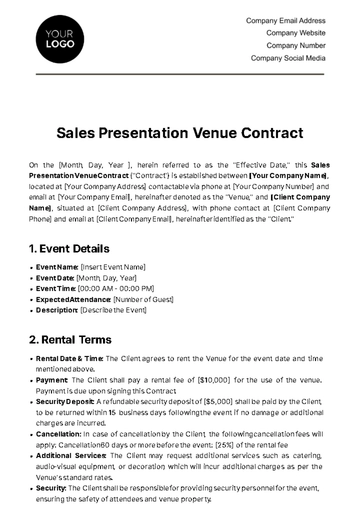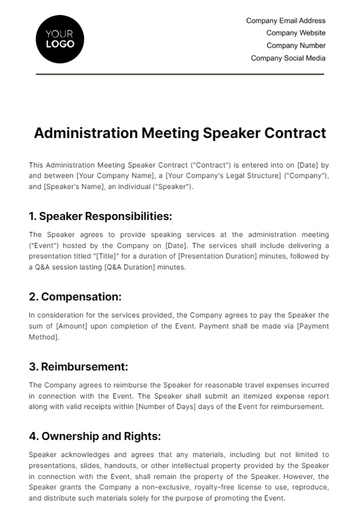Event Contract Management Plan
Prepared By: [Your Name]
Company Name: [Your Company Name]
I. Introduction
This Event Contract Management Plan is designed to establish a comprehensive framework for managing contracts effectively during event planning and execution. Managing contracts efficiently ensures clarity, compliance, and optimal resource utilization.
II. Objectives
Ensure clarity and mutual agreement on terms between all parties involved.
Maintain compliance with legal and organizational standards.
Optimize resource allocation and financial management.
Mitigate risks associated with contract performance and compliance.
III. Scope
This plan covers all stages of contract management, from creation and execution to monitoring and closure. It applies to all internal and external parties involved in event operations.
IV. Contract Creation and Negotiation
A. Identifying Needs
Assess and document the requirements for each event aspect that necessitates a contract, including services, rentals, venues, and vendors.
B. Drafting and Reviewing Contracts
C. Negotiation Strategies
Establish clear objectives and prepare for negotiations by understanding market standards and potential areas for compromise.
Example Strategy: Create a checklist of must-have terms versus negotiable ones.
V. Contract Execution
A. Signing Authority
Ensure all contracts are signed by authorized personnel as per corporate governance policies.
B. Communication Plan
Develop a communication plan to ensure all relevant parties are informed of contract terms and obligations.
Communication Checklist:
VI. Monitoring and Compliance
A. Performance Monitoring
Implement Key Performance Indicators (KPIs) to assess vendor and service provider performance against contract terms. Examples of KPIs include:
Timeliness of deliverables
Quality of services rendered
Adherence to budget constraints
B. Issue Resolution
Create a documented process for addressing and resolving issues that arise during contract execution, involving legal assistance when necessary.
Issue Resolution Process:
Identify the issue and gather relevant documentation.
Communicate with the vendor to discuss the issue.
Document the resolution steps taken and outcomes.
VII. Contract Closure
Conduct a final review of contract fulfillment, collect all necessary documentation, and ensure complete delivery of all contracted services.
Closure Checklist:
Confirm receipt of all services.
Collect final invoices and payment confirmations.
Document lessons learned for future reference.
VIII. Documentation and Record-Keeping
Maintain an organized system for storing all contracts and related correspondence securely, accessible for future reference and audits.
Recommended Storage Solutions:
IX. Risk Management
Identify potential risks associated with each contract and develop mitigation strategies.
Risk Assessment Matrix Example:
Risk Category | Potential Risks | Impact Level (High/Medium/Low) | Mitigation Strategy |
|---|
Vendor Performance | Late delivery of services | High | Establish penalties for late delivery |
Compliance | Non-compliance with laws | High | Regular compliance audits |
Financial | Budget overruns | Medium | Implement strict budget monitoring |
X. Continuous Improvement
Conduct regular reviews of contract management processes and incorporate feedback from stakeholders to enhance plans.
Schedule annual reviews of the Event Contract Management Plan to adapt to changing needs and standards.
XI. Conclusion
Effective contract management is crucial for the successful planning and execution of events. By adhering to this Event Contract Management Plan, organizations can safeguard their interests, mitigate risks, and ensure smooth event operations.
Plan Templates @ Template.net
